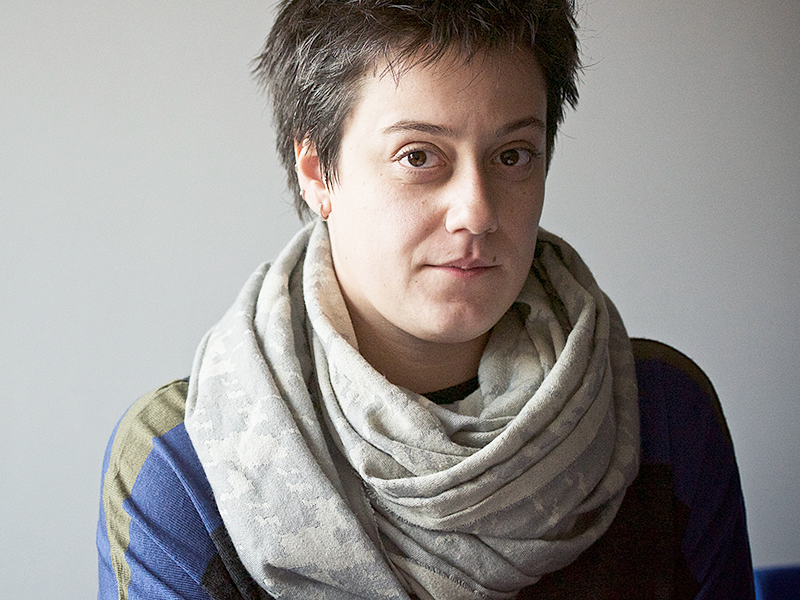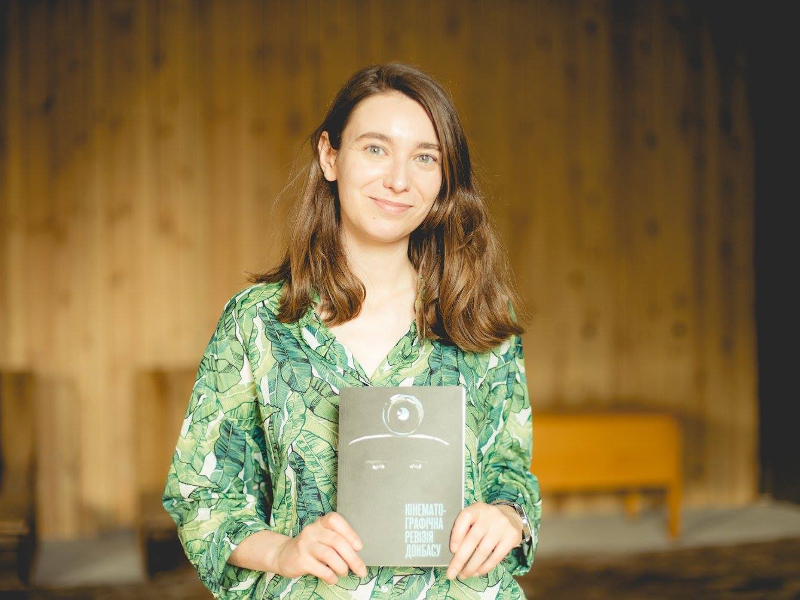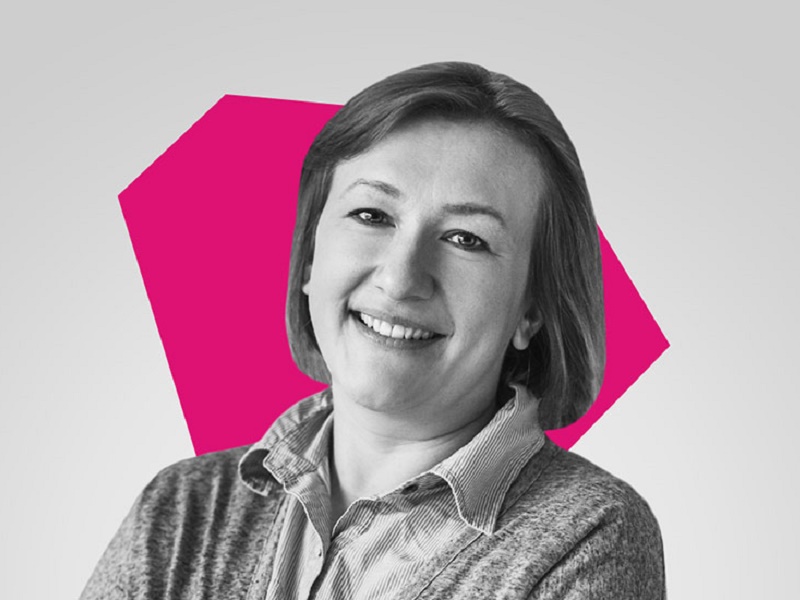
Keti Shengelia says “Georgia Is Bursting with Creative Potential That Needs to Be Developed”
Potential to be realized
One of the objectives of the Programme is to support the development of culture, as well as the creative and audiovisual sectors. For Georgia, participation in the Programme is very important, as it gives our cultural and creative industries and creative professionals the chance to work together with European institutions: to develop together with them, and not only to learn from them, but also to share experiences with them, and create something new together. I think this is the real objective of the Programme – to see what each country can do for the development of culture.
The creative and cultural sector in Georgia has great potential. This includes the creative industry, literature, visual arts, and other areas. All these sectors have potential, and it needs to be built up. However, this process is complicated by the fact that not everyone understands the role of culture in the socio-economic development of the country. Most people do not possess any experience of working on an international scale. Some are afraid to take responsibility, others do not want to change. But at the same time, there is a lot of interest and there are organizations and creative professionals who want to implement great projects.
The fact that Georgia has become part of Creative Europe is in itself very important, as Georgian cultural organizations now have the opportunity to communicate directly with European colleagues. Even at the application stage, they already cooperate and discuss further development of their cooperation.
Activity levels in Georgia
When Georgia had just joined the Programme, there was a big boom in activity. But when cultural professionals learned that there are a few necessary steps to be taken to obtain financing that you need to develop and expand, interest faded a bit.
Nevertheless, the number of applications is growing. In 2015, we had seven projects, and double the number of applications was submitted in 2016. The number is much higher than, for example, in Slovenia, which is now one of the leaders of the Programme. It took them several years to obtain any results. And we already have seven projects that have received funding. Currently, several companies are already preparing projects in order to submit them in 2017. This is a great result, but we would like to see even more participants and projects.
First steps
First and foremost, when planning a project and applying for financing of it, you need to examine the current priorities of the Programme. If an interested organization cannot find this information, it can always ask for help at the Desk, which provides personal advice.
The first step is to understand if you have a good idea, an interesting and reasonable concept of the project. Then, even if you are completely confident, you should consult with a representative of the Creative Europe Desk anyway. We study the proposals made by different organizations, and advise on whether to submit a project for consideration. If it is eligible for the Programme, we also help in the search for partners for the project.

Cooperation for a grant
The culture sub-programme provides four funding schemes: literary translations, cooperation projects, European platforms, and European networks. Literary translation is the only funding scheme, which does not require organizations to have partners in other countries; they may apply by themselves. In all other cases, the project should have at least three partners from different countries.
The countries participating in the Programme have the Creative Europe Desk, we have our own “social network”, and we exchange information about which organizations and in which countries wish to do a project. For example, we report that a Georgian organization wants to implement a project and submit an application. They communicate this in the cultural sector in their respective countries, and then cultural representatives themselves get in touch with each other and start cooperating to elaborate the project.
Once a representative of a UK organization contacted me directly, saying that they have a project and they are looking for an organization from Georgia in the field of classical music. Then I can directly connect them with a music school or with other classical music organizations. This is also one of the functions of the Desk.
Funding terms
The Programme screens applications submitted by organizations rather than individuals. Therefore, an artist, a writer, an author of any creative idea cannot present their project by themselves. They can set up an organization for this, whether by themselves or with a group of like-minded people, but it is important to take into account the fact that the organization must have operated for at least two years. Either that or the interested person can become a project manager in an existing organization. In order to put the idea into practice, you need to try to cooperate and probably forge close links between several organizations as well.
It should be noted that Creative Europe does not provide 100% of funding. All Programme models require partial self-funding. For example, for cooperation projects, the Programme provides 60% of the required amount, but the remaining 40% should be covered by the organization itself or obtained from another funder. And this aspect of the search for additional finance is currently very challenging for Georgia, as well as for other countries.
Language barrier
One of the major difficulties in Georgia is still the lack of proficiency in English. Unfortunately, not many people are fluent in English, and it is a problem. The level of English proficiency in Georgia should be raised.
The majority of creative professionals have a poor command of English, which creates certain obstacles. After all, you need to be fluent to take part in various meetings, training sessions, and workshops. Difficulties also arise when drawing up documents or participating in various online courses, which are numerous in any area in English.

Importance of creative hubs
We are currently witnessing the inception of creative hubs in Georgia. These are places where people can communicate, share ideas and create something new together. Today, it is mostly young people who are involved in creative hubs; older people are not used to the idea, they do not know what a hub is, nor do they understand its purposes. But I think that as soon as they see the potential of such an association, they will join in as well.
We need to engage everyone to participate in creative hubs so that the greatest possible part of society is interested. Expanding the audience is one of the main priorities for the Creative Europe Programme. This means not only access to new audiences, but also developing cooperation with existing ones and creating new joint products, increased participation in creative processes.
The public needs to be informed
One of our goals is to get people interested in the Programme, to attract them to our events. Those, who are already active in this area, are aware of this anyway. Our goal is to bring in new faces. We would be very grateful if the Georgian media gave more coverage to the cultural scene, spotlighted not only Creative Europe, but also other projects related to the development of cultural and creative industries in Georgia.
It should be mentioned that the Ministry of Culture is very interested in developing the creative and cultural industries in Georgia, and now actively assists in raising awareness among the general public. Creative Europe is also committed to communicating the idea that the creative and cultural industries can contribute to country’s development and assists people who are already working in this field to become more successful, to go international.
The situation in the Georgian regions
Creative Europe is much more well-known in Tbilisi than in the regions of Georgia, where access to information is much more limited, as the Internet is not so actively used. In 2017, we plan to organize an awareness-raising tour in Georgia, to hold public meetings and to tell people about the Programme, its opportunities and priorities. We have already held one such meeting in Batumi, and we are pleased that the audience there was even more active than in Tbilisi and took a keen interest in the Programme.
Audiences need time to understand what to expect from the Programme and how to participate. To enable this process, we stage various conferences, debates, workshops, and creative training sessions. Such activities, especially those featuring experts and representatives of foreign organizations sharing their experiences, give Georgian representatives an example that they can follow.




